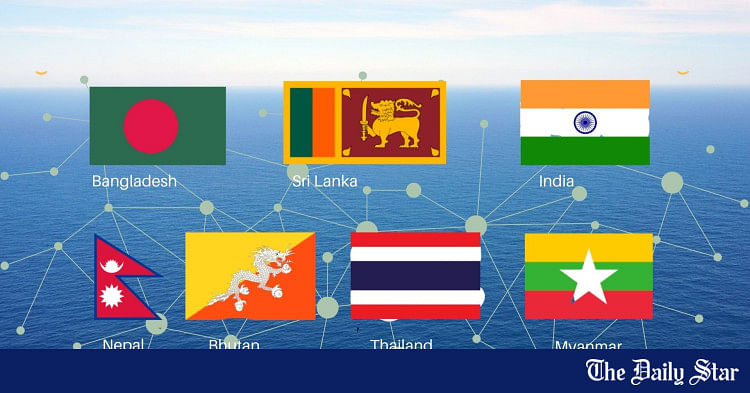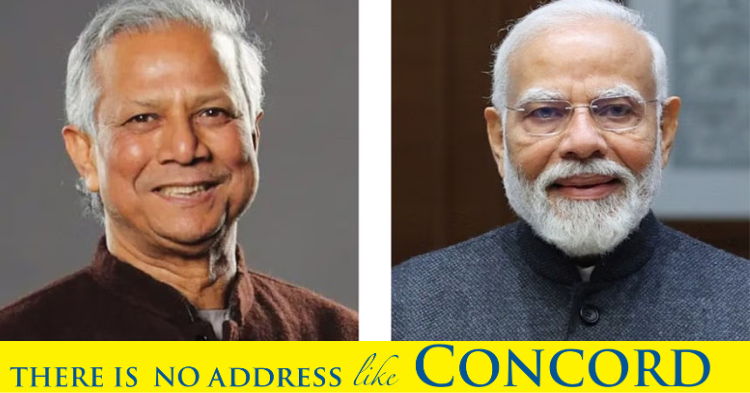- Copy to clipboard
- Thread starter
- #16
Saif
Senior Member
- Jan 24, 2024
- 11,082
- 6,124
- Origin

- Residence

- Axis Group


Myanmar junta chief to join BIMSTEC leaders' summit in rare trip abroad
Myanmar's junta chief Min Aung Hlaing will join a regional leaders' summit in Thailand next week where he is seeking high-level bilateral meetings, three sources with direct knowledge told Reuters, in a rare visit to a Southeast Asian country since seizing power in coup that led to a civil war. Mi
Myanmar junta chief to join BIMSTEC leaders' summit in rare trip abroad
REUTERS
Published :
Mar 28, 2025 21:24
Updated :
Mar 28, 2025 21:24

Myanmar's junta chief Senior General Min Aung Hlaing, who ousted the elected government in a coup, presides at an army parade on Armed Forces Day in Naypyitaw, Myanmar, March 27, 2021. Photo : REUTERS/Stringer/Files
Myanmar's junta chief Min Aung Hlaing will join a regional leaders' summit in Thailand next week where he is seeking high-level bilateral meetings, three sources with direct knowledge told Reuters, in a rare visit to a Southeast Asian country since seizing power in coup that led to a civil war.
Min Aung Hlaing is the subject of widespread western sanctions and is barred from attending summits of the Southeast Asian bloc ASEAN due to the Myanmar military's failure to implement an agreed peace plan with the bloc.
He will join the April 3-4 summit in Bangkok of the BIMSTEC grouping of mostly South Asian countries, where the Myanmar delegation is seeking bilateral meetings with leaders and top officials, according to the sources, who declined to be identified because they were not authorised to speak to media.
The meetings being sought include ones with Indian Prime Minister Narendra Modi and the chief adviser of Bangladesh’s interim government, Muhammed Yunus, the sources said.
"They have been reaching out asking for meetings," one of the sources said, referring to Myanmar officials.
An Indian government source said Myanmar officials had made "overtures" to New Delhi seeking a bilateral meeting between the junta chief and Modi, but added that India had not taken a decision so far.
India's foreign ministry did not respond to a request for comment. A spokesperson for Myanmar's military government could not immediately be reached for comment.
Asked by Reuters if the Myanmar general was attending, Thailand's foreign ministry said all leaders of BIMSTEC member countries have confirmed their attendance.
ESCALATING CRISIS
Myanmar has been in crisis since the military overthrew the elected government of Nobel laureate Aung San Suu Kyi, sparking mass protests that escalated into an armed rebellion against the junta. More than a third of the population is in need of humanitarian assistance, according to the United Nations.
The trip to Thailand to join other leaders would be significant for Min Aung Hlaing, who has sought to gain legitimacy at home and abroad for his plans to return the country to democracy via an election that has been derided by critics as a sham to perpetuate army rule.
The junta chief on Thursday said the election would be held in December, promising a free and fair vote and to transfer state power to the winning party.
Min Aung Hlaing is regarded by many countries as a pariah as head of a military accused of committing widespread atrocities as it battles to hold power and contain a widening rebellion. The military denies wrongdoing.
His trips overseas have been rare, mostly to Russia, which he visited this month, and to China late last year for a sub-regional summit.
His travel could be limited further following an announcement in November by the prosecutor of the International Criminal Court that a warrant for his arrest would be sought for crimes against humanity in the alleged persecution of the Rohingya, a mainly Muslim minority. Myanmar has denied the allegations.
BIMSTEC, or the Bay of Bengal initiative for Multi-Sectoral Technical and Economic Cooperation, includes Thailand, Myanmar, India, Bangladesh, Nepal, Sri Lanka and Bhutan.
REUTERS
Published :
Mar 28, 2025 21:24
Updated :
Mar 28, 2025 21:24
Myanmar's junta chief Senior General Min Aung Hlaing, who ousted the elected government in a coup, presides at an army parade on Armed Forces Day in Naypyitaw, Myanmar, March 27, 2021. Photo : REUTERS/Stringer/Files
Myanmar's junta chief Min Aung Hlaing will join a regional leaders' summit in Thailand next week where he is seeking high-level bilateral meetings, three sources with direct knowledge told Reuters, in a rare visit to a Southeast Asian country since seizing power in coup that led to a civil war.
Min Aung Hlaing is the subject of widespread western sanctions and is barred from attending summits of the Southeast Asian bloc ASEAN due to the Myanmar military's failure to implement an agreed peace plan with the bloc.
He will join the April 3-4 summit in Bangkok of the BIMSTEC grouping of mostly South Asian countries, where the Myanmar delegation is seeking bilateral meetings with leaders and top officials, according to the sources, who declined to be identified because they were not authorised to speak to media.
The meetings being sought include ones with Indian Prime Minister Narendra Modi and the chief adviser of Bangladesh’s interim government, Muhammed Yunus, the sources said.
"They have been reaching out asking for meetings," one of the sources said, referring to Myanmar officials.
An Indian government source said Myanmar officials had made "overtures" to New Delhi seeking a bilateral meeting between the junta chief and Modi, but added that India had not taken a decision so far.
India's foreign ministry did not respond to a request for comment. A spokesperson for Myanmar's military government could not immediately be reached for comment.
Asked by Reuters if the Myanmar general was attending, Thailand's foreign ministry said all leaders of BIMSTEC member countries have confirmed their attendance.
ESCALATING CRISIS
Myanmar has been in crisis since the military overthrew the elected government of Nobel laureate Aung San Suu Kyi, sparking mass protests that escalated into an armed rebellion against the junta. More than a third of the population is in need of humanitarian assistance, according to the United Nations.
The trip to Thailand to join other leaders would be significant for Min Aung Hlaing, who has sought to gain legitimacy at home and abroad for his plans to return the country to democracy via an election that has been derided by critics as a sham to perpetuate army rule.
The junta chief on Thursday said the election would be held in December, promising a free and fair vote and to transfer state power to the winning party.
Min Aung Hlaing is regarded by many countries as a pariah as head of a military accused of committing widespread atrocities as it battles to hold power and contain a widening rebellion. The military denies wrongdoing.
His trips overseas have been rare, mostly to Russia, which he visited this month, and to China late last year for a sub-regional summit.
His travel could be limited further following an announcement in November by the prosecutor of the International Criminal Court that a warrant for his arrest would be sought for crimes against humanity in the alleged persecution of the Rohingya, a mainly Muslim minority. Myanmar has denied the allegations.
BIMSTEC, or the Bay of Bengal initiative for Multi-Sectoral Technical and Economic Cooperation, includes Thailand, Myanmar, India, Bangladesh, Nepal, Sri Lanka and Bhutan.







